Food Safety & Assurance
Certification : Why Is It Important To Us
Food safety and product quality has always been the top priority for PIJ Manufacturing Sdn Bhd.
Hence, we comply with significant accreditation namely ISO 22000:2005, HACCP, GMP and HALAL.
ISO 22000:2005 Certification
|
Food safety is related to the presence and levels of food-borne hazards in food at the point of consumption. Food safety hazards may happen at any stage of the food chain and adequate control throughout the food chain is crucial. Food safety is a joint responsibility of every individual involved in the food chain. Failure in food safety can cause poor quality products and violates people’s trust.
HACCP programs are excellent and work very well to prevent food safety problems, but they are not supported by an all-encompassing systematic approach that includes many of the components extracted from ISO 9001.
To further enhance the food safety compliance, PIJ Manufacturing Sdn Bhd has successfully gained ISO 22000:2005 certification. ISO 22000:2005 goes well beyond regulatory and requirements further than HACCP programs to ensure integrity of food supply chain by minimizing food-borne hazards and ensuring there are no weak links.
|
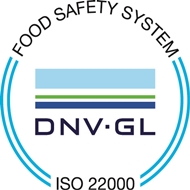
|
Raad voor Accreditatie (RvA)
|
RvA is one of the national accreditation body based on European Regulation 765/2008. RvA primary task consists of accrediting and renewing the accreditations of conformity-assessment bodies: laboratories, inspection bodies, certification bodies and verification bodies. This is to ensure that trust in the quality of products and services is genuinely justified.
There are several bodies accredited by the RvA, and one of them is DNV GL. In order for us to further enhance the food safety compliance of our product. The ISO 22000:2005 that we gain from DNV GL is audited by the RvA.
|
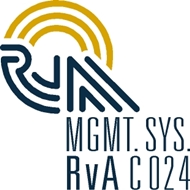
|
Hazard Analysis and Critical Control Points (HACCP)
|
The application of Hazard Analysis and Critical Control Points (HACCP) is based on technical and scientific principles that assure food safety. HACCP requires potential hazards to be identified and controlled at specific points in the process. This includes biological, chemical or physical hazards.
The seven principles of HACCP systems are based on (1) hazard analysis, (2) critical control point identification, (3) establishment of critical limits, (4) monitoring procedures, (5) corrective actions, (6) record keeping and (7) verification procedures.
To safeguard the production of food products, PIJ Manufacturing Sdn Bhd recognized the importance of HACCP and has embedded in its practices throughout the production protocols. The implementation signifies PIJ Manufacturing Sdn Bhd’s effort towards preventive measures which ideally include all processes from the farm to the table.
|
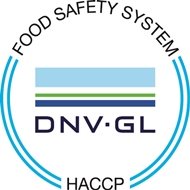
|
Good Manufacturing Practice (GMP)
|
According to the Malaysia’s Control of Drugs and Cosmetics Regulations 1984, it is a pre-requisite for the application of a manufacturing license, product registration or cosmetic notification to comply with Good Manufacturing Practice (GMP).
The GMP compliance of PIJ Manufacturing Sdn Bhd represents a broad based guidance which is developed from the current knowledge of food safety practices. The GMP’s manual provides scientifically based principles that help to assess microbiological hazards within the context of specific climatic, geographical, cultural and economic conditions. It has also assisted operation and management by implementing appropriate and cost-effective risk reduction strategies.
The approach ensures production meets minimum sanitary and processing requirements. The system supports the industry to achieve a higher food production standard to meet the requirements of Malaysia's food safety and needs. GMP certification helps PIJ Manufacturing Sdn Bhd to examine and continuously improve its manufacturing practices.
|
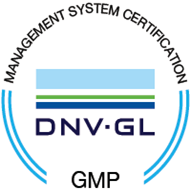
|
HALAL Compliance
|
PIJ Manufacturing Sdn Bhd has obtain HALAL certification. The HALAL certificate shows that we adheres to Malaysian HALAL certification standard to ensure the whole value chain starting from procurement of raw materials, delivery, storage, preparation, production, packaging, labelling and final dispatch of products are guaranteed the halal conformity. Halal means items are prepared under and maintained in strict compliance with the laws and customs of the Islamic religion.
|
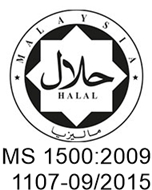
|
MeSTI (Makanan Selamat Tanggungjawab Industri)
|
MeSTI (Food Safety is the Responsibility of the Industry) is a food safety programme undertaken by the Malaysia’s Ministry of Health (MOH). It is a system for the maintenance of food hygiene and process control which includes food safety assurance and food traceability.
Being categorized as a Small and Medium Enterprise (SME), PIJ Manufacturing Sdn Bhd has fulfilled MeSTI requirements to become a major producer and exporter of food products.
|
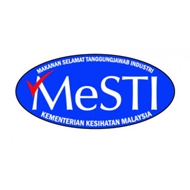
|
myOrganic
Our Aloe Vera farm has obtained the MALAYSIAN ORGANIC CERTIFICATION SCHEME (myOrganic) certification. The myOrganic is a certification scheme drawn up by Malaysian Department of Agriculture to recognize our aloe vera's farms practice organic farming based on Malaysian Standard MS 1529:2001.
The myOrganic certificate assured that our agricultural products is a better quality organic products and safe to eat. It shows that we adheres to Malaysian standard in terms of the production, processing, labelling and marketing of plant based organically produced food.
|
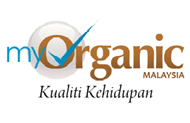
|